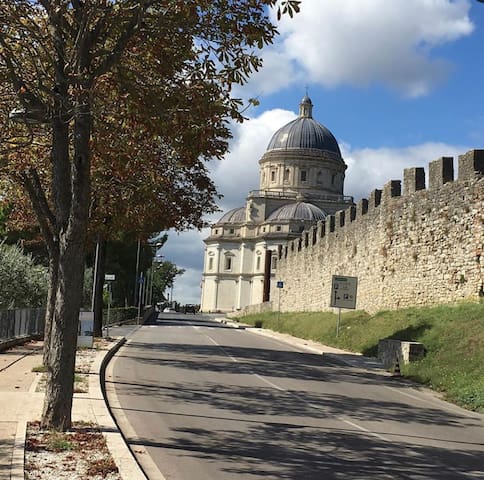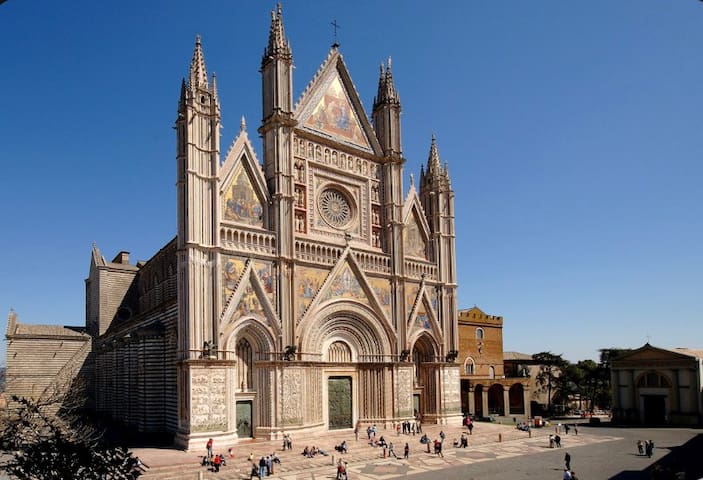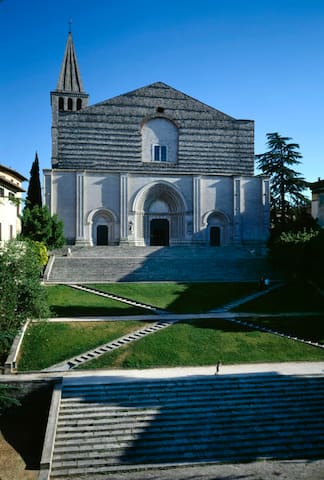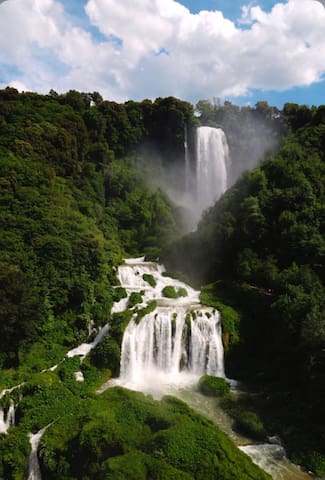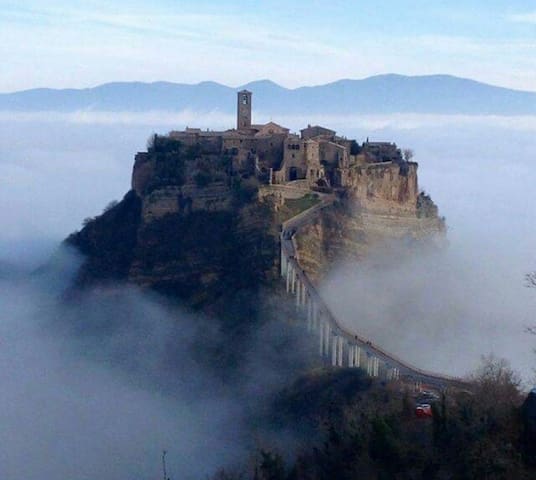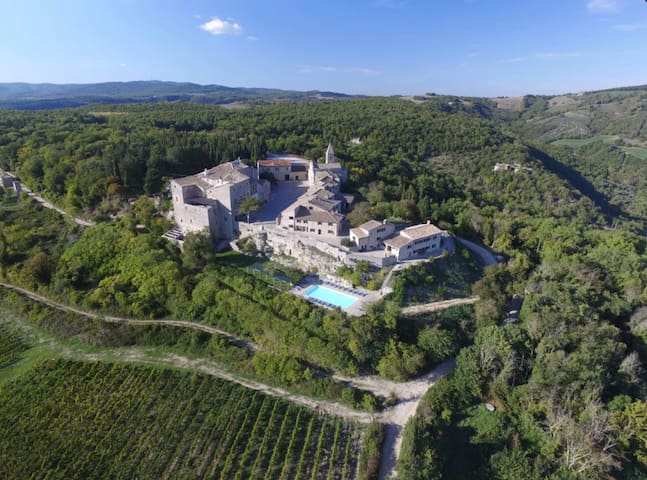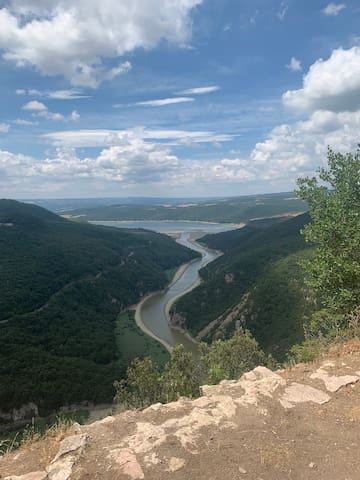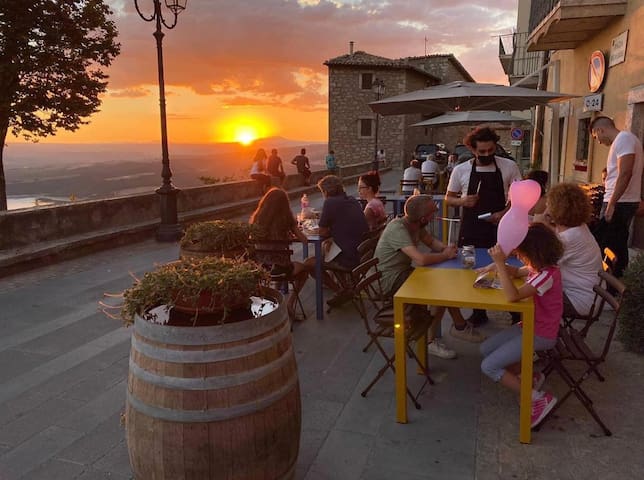Arts & Culture
One of the most important churches of the Italian renaissance built by Bramante
7 當地人推薦
Todi Basilica Consolazione
Viale ConsolazioneOne of the most important churches of the Italian renaissance built by Bramante
National Gallery
19 Corso Pietro Vannuccihttps://gallerianazionaledellumbria.it
Basilica superiore di San Francesco
1 Porta S. Francesco奧維耶托主教座堂
26 Piazza del Duomothe Duomo masterpiece of Gothic architecture.
Gothic church, in the crypt there is the tomb of Jacopone da Todi, one of the most important poets of the medieval age ( “Stabat Mater” and “Laude”)
9 當地人推薦
Chiesa di San Fortunato
6 Piazza Umberto IGothic church, in the crypt there is the tomb of Jacopone da Todi, one of the most important poets of the medieval age ( “Stabat Mater” and “Laude”)
Todi Cathedral
1 Piazza del Popolo奧維耶托地下城
23 Piazza del Duomohttp://www.orvietounderground.it/index.php/it/
Todi Sotterranea
Via Andrea Vicihttp://www.todisotterranea.it
Sightseeing
聖帕特里克井
5B Piazza Cahenhttps://liveorvieto.com/esercente02/
聖彼得羅,佩魯賈
74 Borgo XX GiugnoMarmore Falls
https://www.cascatadellemarmore.info
Carsulae station
Carsulae is an Ancient Roman archaeological site .
http://carsulae.site
The famous Ideal City realized by the architect Tommaso Buzzi. Is a real open-eyed dream full surreal and visionary elements.
63 當地人推薦
拉斯卡祖奧拉
The famous Ideal City realized by the architect Tommaso Buzzi. Is a real open-eyed dream full surreal and visionary elements.
Civita di Bagnoregio
“La città che muore”
"The Dying Town"
Parks & Nature
Castello di Titignano
A wonderful walk in the woods to the remains of an ancient castle… with a wonderful view of the Tiber gorges
La Roccaccia
A wonderful walk in the woods to the remains of an ancient castle… with a wonderful view of the Tiber gorges
Food Scene
Emi Superstore Todi
Via Martiri delle FoibeRistorante Vissani
Vineria San Fortunato Di Giuseppe Foiani
5 Piazza Umberto IEnoteca Oberdan
22 Via Augusto CiuffelliOsteria La Cruccola
8 Piazza Giorgio BernardiBasico
27 Via S. BonaventuraOsteria da zio Cencio
9 Piazza BelvedereKairos Restaurant & Kafè
21 Frazione IzzaliniEssentials
Collelungo
Minimarket
Getting Around
Tower Gallery s.r.l.s.
4 Viale Abdon Menecaliwww.lascarzuola.it
La Scarzuola is Tomaso Buzzi’s elusive, surreal, fairytale version of a vision. He acquired the Franciscan convent in 1956 with the intention to restore it, and then began building his ideal “city”, a theatrical edifice, next to the convent, elaborating his original plan from 1958 to 1978. The “Buzziana” city has seven theatres, and an Acropolis that hosts a series of empty rooms filled with empty compartments, imitating termite tunnels, that represent varying archetypes and present varying perspectives. He was inspired by Francesco Colonna’s Hypnerotomachia Poliphili (1499, Aldo Manunzio editore). The best way to describe his style is Neo-mannerism; the stairways leading towards every angle, purposefully disproportionate in certain sections, and the presence of monsters and superimposed buildings, brings an air of surreal, evocative, geometric, astronomical, and magical energy to this labyrinth.
63 當地人推薦
拉斯卡祖奧拉
www.lascarzuola.it
La Scarzuola is Tomaso Buzzi’s elusive, surreal, fairytale version of a vision. He acquired the Franciscan convent in 1956 with the intention to restore it, and then began building his ideal “city”, a theatrical edifice, next to the convent, elaborating his original plan from 1958 to 1978. The “Buzziana” city has seven theatres, and an Acropolis that hosts a series of empty rooms filled with empty compartments, imitating termite tunnels, that represent varying archetypes and present varying perspectives. He was inspired by Francesco Colonna’s Hypnerotomachia Poliphili (1499, Aldo Manunzio editore). The best way to describe his style is Neo-mannerism; the stairways leading towards every angle, purposefully disproportionate in certain sections, and the presence of monsters and superimposed buildings, brings an air of surreal, evocative, geometric, astronomical, and magical energy to this labyrinth.

